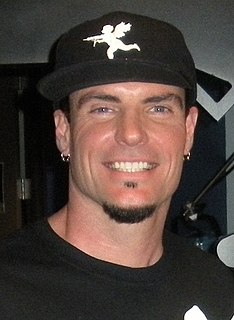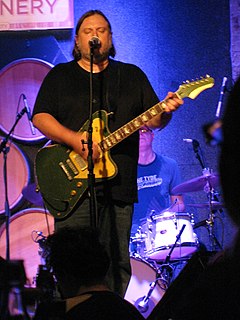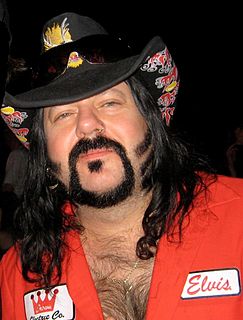A Quote by Agnes Obel
When I started working on my own music, I didn't have the chance to record in a big music studio, so I had to record everything myself.
Related Quotes
Despite the fact that Starbucks has grown to be a large company. We've always played music in our stores and has always acted as an opportunity to create a mood in our stores. And customers started asking, "What song are you playing and can I buy that?" . And we said "No." And that was kind of the catalyst for beginning to look at music. We started out with our own compilations and after the success of that. We had the courage to say, "Let's produce our own record." and the first record was with Ray Charles before he unfortunately passed away.
Early on, before rock 'n' roll, I listened to big band music - anything that came over the radio - and music played by bands in hotels that our parents could dance to. We had a big radio that looked like a jukebox, with a record player on the top. The radio/record player played 78rpm records. When we moved to that house, there was a record on there, with a red label. It was Bill Monroe, or maybe it was the Stanley Brothers. I'd never heard anything like that before. Ever. And it moved me away from all the conventional music that I was hearing.
You can't please everybody, and basically I just decided to please myself first on this record. This record is more like my diary and I am expressing myself through my music. And that's what it should be about. That's why I didn't change my name or anything. It's not about the name; it's about the music. The old saying goes that video killed the radio star and it's very true. And now I'm just letting everything revolve around the music. There is no image; I am just being myself.
[Jack Johnson] became a superstar and started his own record label, and then he made and produced my first record, he co-wrote the songs on there, and then he let me open up for him for two years all around the world. And that was like the best start I could've had, the best way I could've started in the music scene.
Well, I never made a record to be in the Christian market. So when I made my record it was to exist in all of the markets. I grew up not really listening to tons of Christian music and if I did it was in the context of all the other music I listened to. So when I made the record I definitely had plans and visions and dreams.
We drank quite a lot and Tony Harrington said, "We're thinking of starting a record label at The Wire; how about you do a solo record?" I said, "Well, how am I going to do that?" I thought about it, and I'd been working on a lot of music in the years before, and I was working as a journalist, full time, really, up until that point; in whatever little spare time I had, I was working on music. So I said yes.
The spirit of Burzum never changed, but my ability to make music changed dramatically when I was imprisoned. It is more or less impossible to record music in prison, and the only music I could record was electronic music, when I was allowed to have a synthesizer for a few months in 1994 or 1995 and in 1998.
That one record changed everything for me. After Sgt. Pepper, it's the most influential record in the history of rock and roll. It affected Pink Floyd deeply, deeply, deeply. Philosophically, other albums may have been more important, like Lennon's first solo album. But sonically, the way the record's constructed, I think Music from Big Pink is fundamental to everything that happened after it.
I would give anything if it went back to analog age. I mean, music was so real, and you had to sing everything on a record; you had to play everything on a record. There was no cut-and-paste - you couldn't get the chorus right one time and then paste it every other time; you really had to be good at what you did.

































